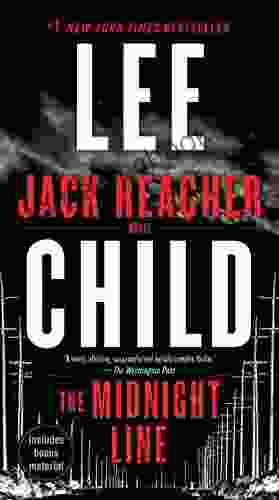: The Blinders of Cultural Interpretation
The Bible has been a guiding light for countless individuals throughout history, providing spiritual guidance and moral principles. However, the interpretation of the Bible is often influenced by our cultural experiences and biases. These biases, like blinders on a horse, can prevent us from seeing the full depth and richness of the biblical message.
By removing these cultural blinders, we can gain a clearer understanding of the Bible and its transformative power. This article will explore the various cultural biases that can impact biblical interpretation and provide strategies for overcoming them.
4.6 out of 5
| Language | : | English |
| File size | : | 629 KB |
| Text-to-Speech | : | Enabled |
| Screen Reader | : | Supported |
| Enhanced typesetting | : | Enabled |
| X-Ray | : | Enabled |
| Word Wise | : | Enabled |
| Print length | : | 241 pages |
Cultural Biases and Their Effects
Cultural biases are deeply ingrained beliefs, values, and assumptions that shape our worldview. They influence how we perceive and interpret information, including the biblical text.
- Egocentric Bias: We tend to interpret the Bible through the lens of our own experience and culture, assuming that our understanding is the correct one.
- Historical Bias: The historical context in which the Bible was written can influence our interpretation, leading us to emphasize certain aspects while ignoring others.
- Socioeconomic Bias: Our socioeconomic status can impact our understanding of biblical teachings, particularly those related to poverty, wealth, and social justice.
When we allow cultural biases to guide our biblical interpretation, we risk distorting the true meaning of the text. We may fail to recognize the complexities and nuances of the biblical message, and we may apply it in ways that are inconsistent with its original intent.
Removing the Blinders
Overcoming cultural biases in biblical interpretation requires a conscious effort and a willingness to challenge our own assumptions. Here are some strategies:
- Be aware of your biases: Recognizing the biases we bring to the text is the first step in overcoming them.
- Study the historical context: Understanding the historical, cultural, and social context in which the Bible was written can provide valuable insights into its interpretation.
- Be humble and open-minded: Approaching the Bible with humility and a willingness to learn allows us to receive its message without preconceived notions.
li>Consult multiple sources: Reading commentaries, attending Bible study groups, and seeking the perspectives of diverse individuals can help broaden our understanding and challenge our assumptions.
By removing cultural blinders, we can uncover the transformative power of the Bible. We can better understand its teachings, apply them to our lives in meaningful ways, and bridge cultural divides to create a more just and compassionate world.
The Benefits of a Bias-Free Interpretation
Removing cultural blinders in biblical interpretation offers numerous benefits:
- Deeper understanding: We gain a more profound understanding of the biblical message, its complexities, and its historical context.
- Accurate application: We can apply biblical teachings to our lives in ways that are consistent with their original intent and that promote justice and compassion.
- Enhanced appreciation: We develop a greater appreciation for the beauty, wisdom, and relevance of the biblical message.
- Bridging cultural divides: By recognizing the cultural influences on biblical interpretation, we can bridge cultural divides and engage in meaningful dialogue with people from diverse backgrounds.
, removing cultural blinders is essential for gaining a deeper understanding of the Bible and harnessing its transformative power. By being aware of our biases, studying the historical context, consulting multiple sources, and approaching the text with humility, we can overcome the limitations of cultural interpretation and embrace the transformative message of the Bible in all its richness and diversity.


























































































